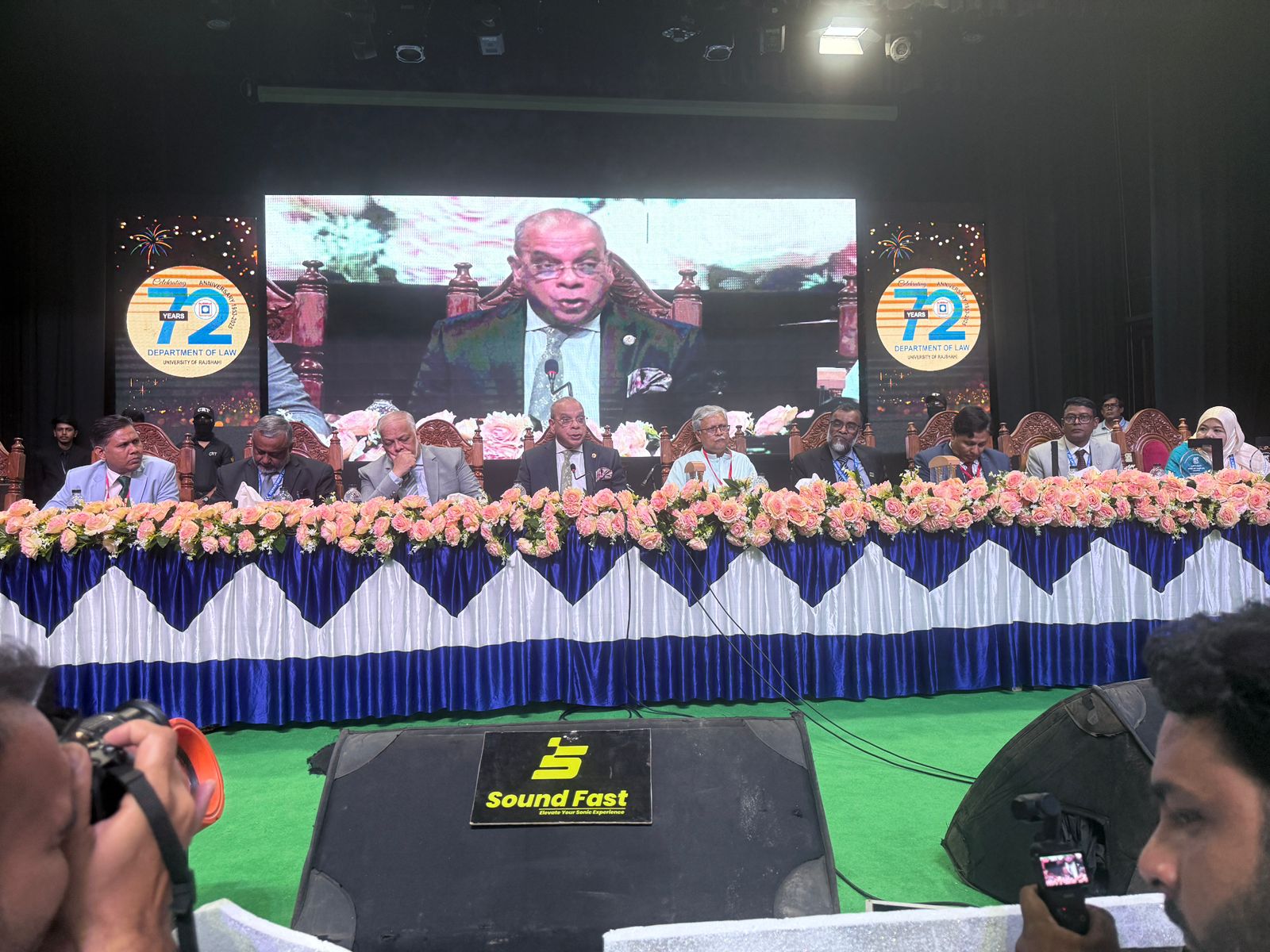News Flash

RAJSHAHI, Oct 25, 2025 (BSS) - Chief Justice Dr Syed Refaat Ahmed has said
justice strengthens the state, while the absence of justice can make even the
strongest nations crumble.
Citing the Universal Declaration of Human Rights, he said that global
awareness of injustice and abuse of power gave rise to a renewed moral
consciousness that upholds human dignity and freedom.
"Law is not only a set of regulations but also a reflection of conscience or
moral of the nation," he said while addressing a ceremony to mark the 72nd
founding anniversary of the Department of Law at Rajshahi University (RU) at
its Kazi Nazrul Islam auditorium today as the chief guest.
Appellate Division Justices Zubayer Rahman Chowdhury, SM Emdadul Haque, and
AKM Asaduzzaman, along with High Court judges, faculty members, legal
scholars, and students joined the programme.
The Chairman of the Department of Law presided over the ceremony.
Chief Justice Dr Syed Refaat Ahmed underscored the need for a roadmap for
reformation of the judiciary and institutional independence of the judiciary.
Emphasising technology-driven justice, Refaat said the judiciary must adapt
to the age of artificial intelligence and automation through data-based
management and digital access to justice.
At the centre of the government's Roadmap for Judicial Reform is the plan to
create a separate Supreme Court Secretariat, envisioned as the administrative
hub of the judiciary.
The proposed secretariat will oversee planning, coordination, and management
of judicial affairs, ensuring efficiency, transparency, and greater access to
justice.
The chief justice emphasised the need for collective efforts from the Supreme
Court administration, Bar Council, Supreme Court Bar Association, judges of
district courts, and the Bangladesh Judicial Service Association.
"Reciprocity, rationality, and avoidance of one-upmanship should be the three
guiding principles for ensuring the judiciary's lasting autonomy. Even the
slightest hint of distrust or unilateral decision-making could endanger the
very architecture of institutional independence," he added.
Referring to Bangladesh's own history, he said the Language Movement of 1952
and the Liberation War of 1971 were not only political struggles but also
battles for justice, dignity, and self-determination.
The Chief Justice said the decision follows 15 months of strategic
coordination between the office of the chief justice and the Executive
branch, aimed at institutionalizing judicial autonomy through structural
reforms.
He praised Rajshahi University for its significant contributions to
Bangladesh's legal system and expressed hope that it would continue producing
jurists who are both intellectually and morally enlightened.